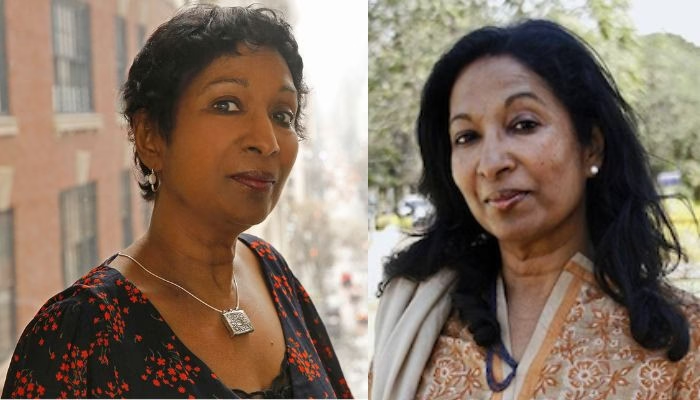Meena Alexander, a distinguished Indian-American poet, scholar, and writer, was an extraordinary voice in contemporary literature. Her life and works, enriched by multicultural experiences spanning India, Sudan, and the United States, contributed significantly to themes of dislocation, identity, and memory in global literary discourse. This blog offers an in-depth look at her life, literary career, and enduring legacy.
Early Life and Education
Meena Alexander was born Mary Elizabeth Alexander on February 17, 1951, in Allahabad, India, to parents originally from Travancore. Her childhood was marked by journeys between India and Khartoum, Sudan, where her father worked as a meteorologist. These early relocations deeply influenced her understanding of identity and displacement—a recurring motif in her work.
Despite moving frequently, Alexander excelled academically. She graduated from Khartoum University at the remarkable age of 18 with a bachelor’s degree in English and French. Subsequently, she pursued a Ph.D. in British Romantic literature at the University of Nottingham, completing it by the age of 22.
It was during these formative years that Alexander began exploring her unique voice as a writer. She adopted the name “Meena,” which she had been affectionately called at home, and embraced poetry as the medium to express the complexities of her multicultural upbringing. She Died in November 21, 2018 (age 67 years), New York, United States.
Literary Career and Themes
After completing her studies in England, Meena Alexander returned briefly to India to teach at institutions like Delhi University and the University of Hyderabad. However, her literary career gained momentum after she moved to the United States in 1979 with her husband, historian David Lelyveld.
Alexander’s works frequently explored themes of migration, identity, and the significance of place. Drawing on her personal experiences, she coined the term “aesthetic of dislocation” to describe her creative approach. This concept reflects the fragmented sense of self experienced by those living in diaspora or grappling with cultural intersectionality.
One of her defining traits as a poet was her linguistic fluidity. While fluent in Malayalam and English, her works also resonated with echoes of Hindi, Arabic, and French. This multilingual backdrop lent her poetry a rhythm and depth that gracefully bridged diverse cultural traditions.
Major Works and Analysis
Meena Alexander’s literary contributions spanned poetry, prose, memoirs, and critical essays. Some of her most celebrated works include:
Poetry Collections
- Illiterate Heart (2002)
Winner of the PEN Open Book Award, this collection is a profound exploration of love, loss, and memory, often rooted in immigrant experiences. Its themes of personal and cultural reconciliation secured her place as a leading voice in Asian American poetry.
- Raw Silk (2004)
This collection intertwines the personal with the political, addressing events like the September 11 attacks. Its evocative imagery and emotional intensity showcase Alexander’s ability to parse collective grief through individual experience.
- Atmospheric Embroidery (2018)
Published shortly before her passing, this work was praised for its lyrical and sensory depictions of migration and belonging.
Prose and Memoirs
- Fault Lines (1993, expanded 2003)
Alexander’s memoir reflects on her multicultural upbringing and identity as a diasporic woman. The expanded edition includes candid revelations about childhood trauma, underlining her courage in confronting personal and societal challenges.
- The Shock of Arrival (1996)
This essay collection examines postcolonial experiences, particularly how migration and cultural hybridity shape personal and collective identities.
Novels
- Nampally Road (1991)
Set in Hyderabad during a period of political unrest, this semi-autobiographical novel is a poignant critique of corruption and gender violence in Indian society.
- Manhattan Music (1997)
A mosaic of personal stories set in New York City, this novel captures the dislocation and reimagination of identity within immigrant communities.
Literary Analysis
Alexander’s poetry and prose are characterized by vivid imagery and an underlying sensitivity to historical and cultural contexts. Critics often highlight her ability to weave the deeply personal with the universal, allowing readers to connect with her themes regardless of their background. Her works are lauded for their emotional resonance and their celebration of linguistic and cultural diversity.
Awards, Recognition, and Legacy
Meena Alexander received numerous accolades during her career, underscoring her impact on contemporary literature:
- PEN Open Book Award (2002): For her poetry collection Illiterate Heart.
- Distinguished Achievement Award (2009): From the South Asian Literary Association for her contributions to American literature.
- Imbongi Yesizwe International Poetry Award (2002): Recognizing her contributions to global poetry.
Her teaching career paralleled her writing. As a Distinguished Professor of English at Hunter College and the CUNY Graduate Center in New York City, Alexander inspired countless students and young writers. Her influence extends through her editorial work, including Indian Love Poems (2005) and Name Me a Word (2018), which highlight Indian literary voices.
Posthumously, her poetry collection In Praise of Fragments (2020) and the critical anthology Passage to Manhattan (2009) continue to bring her work into scholarly conversation. Google also honored her with a Doodle in 2024 during Asian American, Native Hawaiian, and Pacific Islander Heritage Month.
Carrying Forward Meena Alexander’s Legacy
Meena Alexander’s life and work exemplify the power of literature to bridge cultures and articulate human vulnerability. Her poignant reflections on identity, trauma, and migration resonate with audiences today, offering timeless lessons about resilience and creativity.
For poetry enthusiasts, literature students, and aspiring writers, Alexander’s body of work is a rich resource for understanding the nuanced intersections of history, culture, and the human condition. To explore more about South Asian literature and diasporic narratives, her writings are an essential starting point.
Engage with Meena Alexander’s Universe
Dive deeper into Meena Alexander’s poetry and prose. Whether you’re a dedicated literature student or a curious reader, her works promise to inspire new ways of thinking about identity, place, and art.

